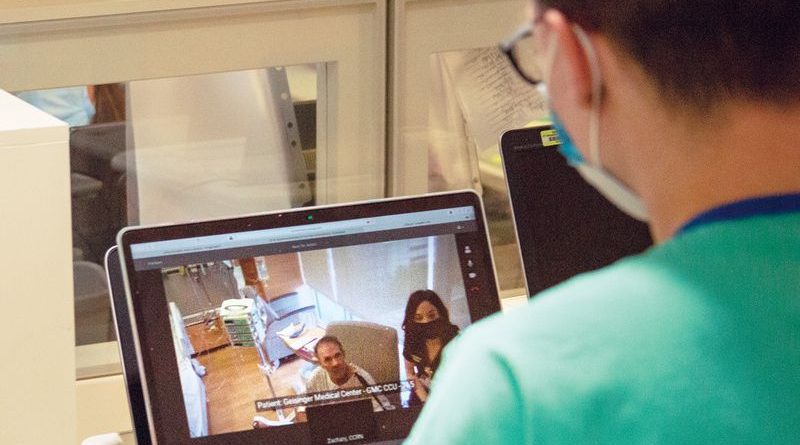COVID-19 spurring permanent curriculum changes at medical schools
Medical schools are significantly changing their curriculums as they try to navigate the complexity of training the next generation of clinicians during a worldwide pandemic. Some of the modifications are likely to stick around long after COVID-19 is gone.
Medical school leaders say the pandemic has encouraged them to be more innovative and re-think some traditions of medical education. Changes include transitioning courses to virtual settings, having smaller groups participate in anatomy dissections, requiring students to wear personal protective equipment during clinical rotations and allowing them to participate in telehealth visits alongside a physician.
“COVID-19 has kind of shaken the box,” said Dr. Steven Scheinman, dean of the Geisinger Commonwealth School of Medicine in Scranton, Pa.
The school was planning changes to its curriculum prior to COVID, in particular moving all its courses away from lecture to discussion classes. COVID-19 accelerated that, and even brought forward new components to the curriculum that leadership plans to keep, Scheinman said.
For instance, one part of Geisinger’s curriculum has students participating in small group discussions with a physician to review real-world patient cases and how they’re handled in the health system. But it was often difficult to book the most sought-after physicians because of their busy schedules. In response to COVID, the school transitioned to Zoom web conferencing for the group discussions, giving physicians more flexibility to participate.
“I don’t know if we would have thought of Zoom if it hadn’t been for COVID,” Scheinman said.
Other schools are also finding unexpected benefits to changes COVID-19 forced them to implement. Among them is Indiana University School of Medicine, which has revamped its clinical clerkships for third- and fourth-year students.
Prior to COVID, students had clinical rotations with didactic courses to supplement the clinical experience. In March, when clinical rotations were suspended, the school quickly moved the didactic courses online. When those students returned in late June to complete their clinical rotations, they said they felt more comfortable and knowledgeable about what they were seeing since they had so much background from the didactic courses. Given that positive feedback, IU School of Medicine plans to teach the didactic courses to students prior to the start of clinical rotations.
“Students seemed to be more prepared (for clinical rotations) and … to hit the ground running more than what we had in the past,” said Dr. Brad Allen, senior associate dean of medical student education at IU School of Medicine.




